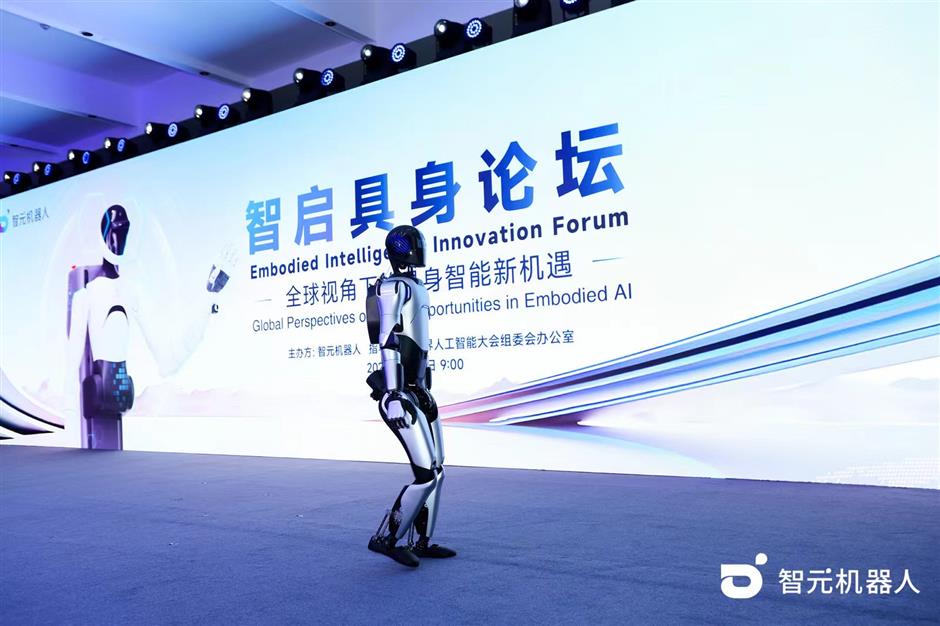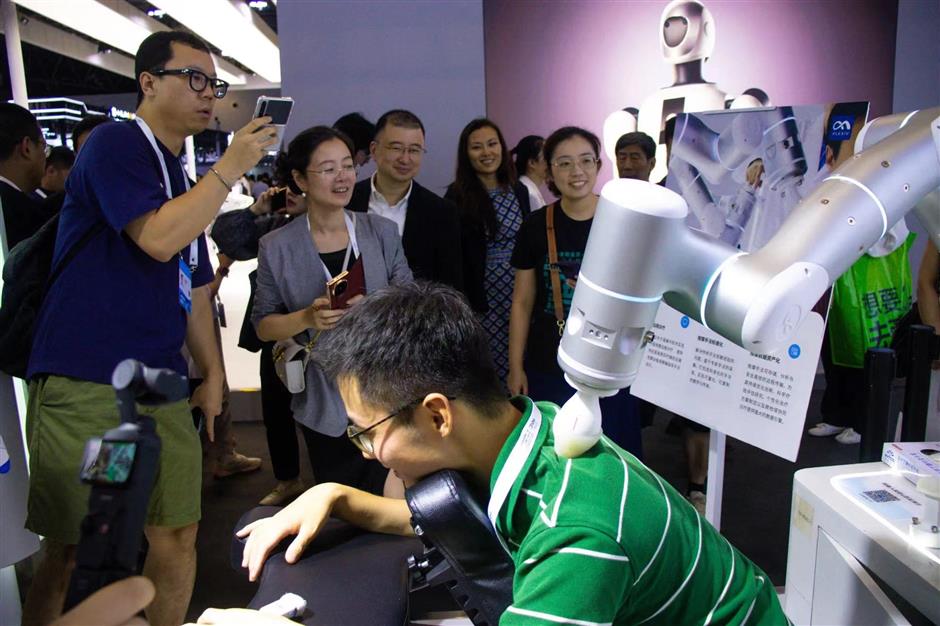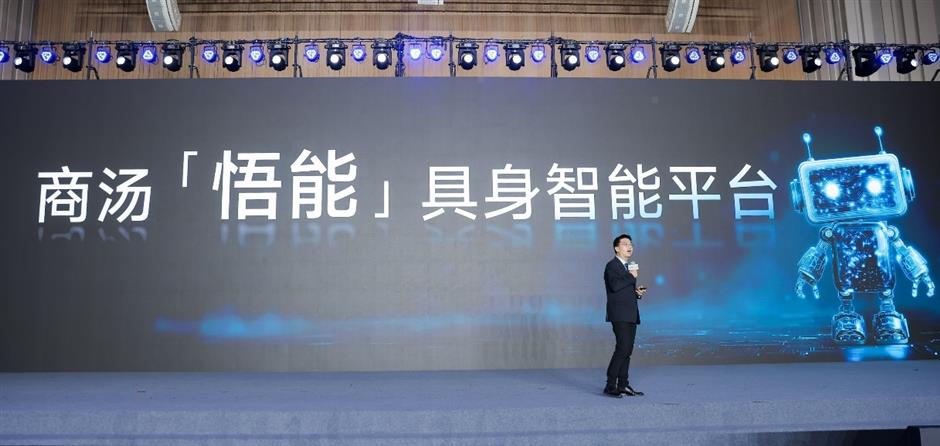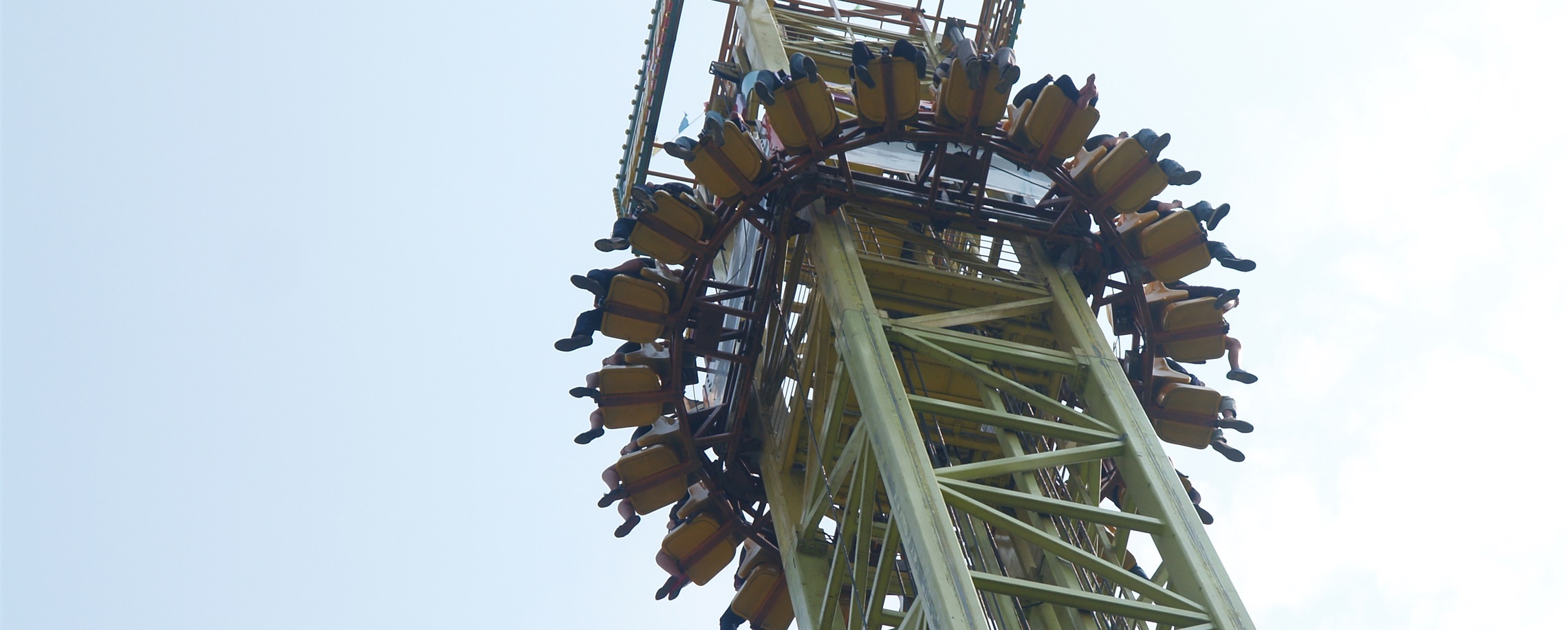Humanoid robots and Shanghai's role in their development bedazzle AI conference
Robots are the stars at the World Artificial Intelligence Conference that ends today in Shanghai, with over 150 models populating exhibition floors amid high expectations that this is only the start of a lucrative industry.
While Hangzhou-based Unitree's robot boxing matches continue to capture public attention, the larger story is how Shanghai is emerging as a powerful player in the development of humanoid robots.


Shanghai-based AgiBot – which recently listed on the STAR Market where its stock price surged 10-fold this month – unveiled its Genie Envisioner humanoid open-source platform at the conference. It integrates core capabilities of prediction, control and evaluation, providing an end-to-end, integrated solution for humanoid robot development.
The platform is expected to drastically lower the barrier for algorithm deployment and accelerate technological implementation, a significant step in the standardization, scalability and ecosystem development of embodied intelligence.
AgiBot previously built its own professional data collection site, becoming the world's largest humanoid development database.
"Facing the desert of embodied intelligence data, we choose to plant the first tree, hoping it will become a forest. Large models empower humanoids with wisdom and soul," said Yao Maoqing, president of the Embodied Business unit at AgiBot.
AgiBot's models have found applications in industrial manufacturing, warehousing and logistics and power inspection. The company anticipates at least 2,000 humanoid robots will roll off the production line next year. Yao said the entry into factories will be followed by penetration in retail and service sectors, extending to homes within a few years.


Just a few steps away from AgiBot's booth at the exhibition, Shanghai-based OYMotion, a company specializing in dexterous robotic hands, showcased its latest innovations in the critical component for humanoid robots to perform complex tasks. Robotic hands often account for over 10 percent of a robot's cost.
OYMotion said its hands are capable of "picking up a potato chip without breaking it." Beyond dexterous hands, the booth also featured motion-capture gloves.
The company's hands are sold as components for AgiBot and other humanoid robot brands, while their bionic hands are already exported to the US, the Middle East, Russia and other regions.
Flexiv, another Shanghai-based robotics firm, exhibited new models of robots that focus on force sensing, feedback and control as core capabilities.

Force sensing is the sole means of determining an object's softness and smoothness, and whether it's stuck or clamped. That moves beyond long-standing reliance on single-dimensional visual perception.
At the company's booth, Flexiv's robots demonstrated intricate applications, like scooping ice cream and providing body massages. In the massage domain, the system precisely deploys professional techniques such as finger kneading, finger plucking and palm rubbing.
Xiao Feng, a young man who tested the massage robot on site, said he would be happy to accept a robot massage as long as the price didn't exceed a human massage.
"I'm curious about the effect on acupoints," he said. "If there's scientific and data-based evidence, I'd be very willing to try it."


Shanghai is well on its way toward becoming a major global center for robotics development.
"Shanghai hopes to develop humanoid robots that can tackle everyday chores and industrial tasks, and are not merely show performers," said Jiang Lei, chief scientist at the National and Local Co-Built Humanoid Robotics Innovation Center. This center, a public platform for robotic training and data collection, showcased over a dozen different humanoid robots at the exhibition.
In a separate event, Shanghai-based SenseTime released its first embodied intelligence platform Wuneng, expanding beyond AI models for smartphone, vehicles and cameras. It provides powerful perception, visual navigation and multimodal interaction capabilities.

SenseTime Chairman Xu Li demonstrated a Wuneng-powered robot that was able to answer questions and draw conclusions after the interaction. With SenseTime's model, users need only to enter simple prompt – such as "find something on the shelf in the kitchen area" or "enter the entertainment room, turn right, and then open the door to the yard." The robot then responds autonomously to fill the requests.


Tesla's anticipated introduction of new humanoid models, likely later this year, is also regarded as a driving force for the local industry. The company, which has major auto and battery-storage manufacturing facilities in Shanghai, is expected to produce new robotics models that will raise technology levels for the entire supply chain, said AgiBot's Yao, drawing parallels to how Tesla's Shanghai electric-car factory improved the entire Chinese electric car supply chain.
China Mobile, the world's largest mobile carrier, is also a strong player in the humanoid robot industry.
At the exhibition, it unveiled a special embodied intelligence community with open and shared data and models. The company announced that customized humanoid robots will be deployed in China Mobile outlets in Shanghai and Suzhou as guides by the end of this year.
Notably in July, AgiBot and Unitree secured a combined order from China Mobile valued at 124 million yuan (US$17.3 million), marking the largest single order for humanoid robots in China so far.
The humanoids market appears to go from strength to strength.
"At least one new robot is released every day," said Wang Xingxing, Unitree's chief executive, who also attended WAIC in Shanghai. "The pace of the entire industry, including industry implementation, development pace and shipment volumes, is extremely rapid."

In Case You Missed It...







